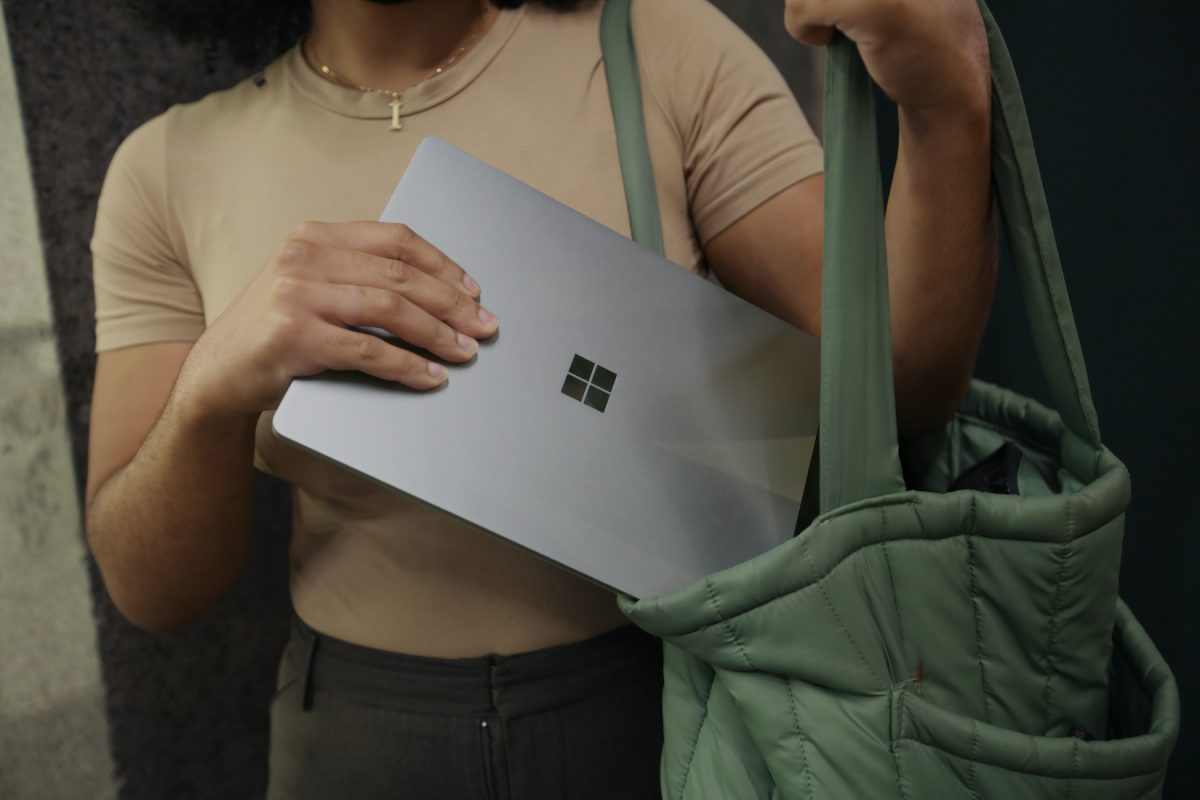Ever felt like your money is stuck in a boring safe that refuses to grow while you’re out there living your best life? Say hello to the Self-Select ISA—a financial tool that’s as flexible and independent as you are! This guide is here to break down everything you need to know about Self-Select ISAs, from benefits and fees to rates and other key info, all served up with a side of wit and plenty of practical advice for savvy millennials and Gen Zers ready to take charge of their financial future.
Self-Select ISA: Benefits, Fees, Rates & Key Information Table of Contents
The Benefits of a Self-Select ISA
Understanding the Fees and Charges
Diving Into the World of Investment Rates and Returns
Getting Started: How to Open a Self-Select ISA
Self-Select ISA vs. Managed ISA: Understanding the Difference
Assessing Risks: What to Consider Before You Dive In
Learning the Lingo: Key Terms to Know
Resources and Community Support: Your Next Steps
Your Journey to Financial Empowerment with a Self-Select ISA
What Is a Self-Select ISA?
In the world of Individual Savings Accounts (ISAs), the Self-Select ISA stands out as your very own DIY investment kit. Unlike a standard ISA where a fund manager decides where your money goes, with a Self-Select ISA you’re the boss. It allows you to pick and choose your investments—whether that’s buying stocks, bonds, or other eligible assets—all while enjoying the sweet tax-free perks. It’s like building your personal portfolio buffet where you call the shots on what goes on your plate.
Think of it this way: if a traditional ISA is like waiting for a friend to pick out a trendy outfit for you, a Self-Select ISA is a tailor-made ensemble where you choose every detail yourself. You’re not locked into pre-designed packages and can adapt your investments to suit your lifestyle, risk tolerance, and financial goals. Whether you're a total newbie or a seasoned investor, this type of ISA can match your ambition—just add a pinch of research and a dollop of courage!
A Self-Select ISA is especially appealing if you like having control over your money and love to tinker with your investments. However, with great power comes great responsibility. You’ll need to put in the research, monitor your portfolio, and occasionally ride the roller coaster of market fluctuations. But hey, if you’re here to make your money work as hard as you do, this is the perfect platform.
The Benefits of a Self-Select ISA
When choosing a Self-Select ISA, it’s not just about owning a financial product—it's about embracing flexibility and control in your financial journey. Here are some of the standout benefits:
- Total Control: You decide how your money is allocated. Whether it’s individual stocks, ETFs, or bonds, the power is firmly in your hands.
- Tax-Free Growth: One of the biggest draws of any ISA is the tax benefits. Earnings, dividends, and capital gains are all free from tax, letting your money grow without Uncle Sam tapping your shoulder.
- Personalization: Customize your investment strategy to match your personal risk tolerance and goals. Whether you’re a cautious saver or a risk-taking trendsetter, your ISA works your way.
- Learning Opportunity: Managing your own portfolio offers a crash course in investing. It might be a steep learning curve at first, but the financial know-how and confidence you build are priceless.
- Access to a Broad Range of Investments: From blue-chip stocks to emerging market ETFs, a Self-Select ISA opens up a world of possibilities that go beyond the limited options of a managed ISA.
Basically, if you’re itching to be your own financial guru, the Self-Select ISA is the perfect gateway to understanding markets, exploring diverse investment options, and watching your money grow in a tax-efficient manner.
Understanding the Fees and Charges
Let’s be honest—nobody likes fees, especially not when you’re trying to stack up savings for that epic travel goal or your first home purchase. With a Self-Select ISA, transparency is key, but there are various fees you need to keep in mind:
Platform Fees
Most providers charge a platform fee for hosting your account and giving you access to their online tools and research. These fees are typically a small percentage of your invested amount and are often billed annually or monthly. It may sound like a downer, but think of it as the cost for a digital assistant that helps keep your investments in check.
Trading Fees
Every time you buy or sell an asset, you might incur a trading fee. These fees vary depending on the provider and the type of asset involved. Some platforms offer commission-free trades on certain investment types, while others might let you trade at a premium for less common assets. Always compare fees between different platforms to ensure you’re getting the best bang for your buck.
Custody Fees
A custody fee is charged for the safekeeping of your investments—the financial equivalent of a secure vault. While these fees are generally minimal, they should still be factored into your long-term cost considerations. Providers are transparent about these charges, so a little homework upfront can help you avoid unexpected deductions later.
Exit Fees
Some platforms may charge a fee when you decide to move your account elsewhere or withdraw funds, so it’s important to read the fine print. While exit fees aren’t always a deal-breaker, they can impact your strategy if you plan to be a frequent trader. Look for providers that offer flexibility in this area if you value mobility.
Understanding these fees means you won’t be caught off guard when it comes time to invest. The key is to balance cost with the benefits of a platform’s tools, resources, and overall usability.
Diving Into the World of Investment Rates and Returns
Let’s talk numbers—specifically, the rates and returns that can make your portfolio sparkle. While a Self-Select ISA doesn’t offer a fixed interest rate like a savings account, it provides the playground for you to seek higher, sometimes even spectacular potential returns through investments.
The returns you earn in a Self-Select ISA depend on the performance of your chosen investments. Here’s what you need to know:
- Market-Dependent Returns: Unlike a traditional savings account, your returns are tied to the market. When the markets are doing well, your investments can grow significantly; when they dip, you might see a temporary decline.
- Diversification Matters: Spreading your investments across different assets can help manage risk and smooth out overall returns. A diversified portfolio is like having multiple income streams—it minimizes the impact of one bad investment.
- Long-Term Focus: Investing is generally a long-term game. Short-term volatility is part of the journey, but history suggests that markets tend to rise over longer periods.
- Compound Growth: Tax-free growth combined with the magic of compounding means that over time, your returns can snowball. Reinvesting dividends and capital gains can lead to exponential growth if you're in it for the long haul.
While past performance is no guarantee of future results, familiarizing yourself with investment rates and trends can help you make informed decisions. It’s about striking a balance between risk and reward that makes sense for your unique financial aspirations.
Getting Started: How to Open a Self-Select ISA
Taking the plunge into managing your own investments can seem daunting at first, but setting up a Self-Select ISA is simpler than you might think. Here’s your step-by-step guide to getting started:
Step 1: Research Your Providers
Start by comparing various Self-Select ISA providers. Look for platforms that offer competitive fees, robust research tools, a user-friendly interface, and positive customer support reviews. Consider what features are most critical for your investing style.
Step 2: Sign Up Online
Once you’ve picked your provider, sign up online. This process usually involves filling out a few forms, verifying your identity, and linking your bank account. Most providers make it a breeze to get started so you can dive into the fun part—choosing your investments.
Step 3: Fund Your Account
After signing up, it’s time to fund your ISA. You can typically transfer funds directly from your bank. Some platforms even allow you to set up regular contributions, which is a fantastic way to grow your investment steadily over time without even thinking about it.
Step 4: Build Your Portfolio
Here’s where the magic happens. Using the research tools and investment options provided by your platform, start selecting the assets that align with your financial goals. This might include a mix of stocks, ETFs, bonds, and other eligible investments.
Step 5: Monitor and Adjust
One of the beauties of a Self-Select ISA is that it evolves with your needs. Regularly review your portfolio, track performance, and adjust your strategy as needed. Whether you’re rebalancing to maintain a diversified portfolio or capitalizing on emerging trends, staying engaged is key to long-term success.
By following these steps, you’ll be well on your way to financial empowerment—taking full control of your investments, growing your wealth, and learning valuable lessons along the way.
Self-Select ISA vs. Managed ISA: Understanding the Difference
The decision between a Self-Select ISA and a Managed ISA often boils down to how much control you want over your investments versus how much time and expertise you have to manage them. Here’s the lowdown:
Your Investment, Your Rules
With a Self-Select ISA, you call the shots. You get to decide which assets to invest in, when to buy or sell, and how to diversify your portfolio. It’s ideal for those who have a keen interest in the markets, enjoy the research process, and prefer to manage their own money.
A Hands-Off Alternative
A Managed ISA, on the other hand, is like hiring a financial concierge. A professional manages your portfolio, making adjustments based on market movements and investment strategies. This option is perfect if you’d rather focus on living your life and let someone else worry about the nitty-gritty of managing investments.
Ultimately, it’s a matter of preference. The Self-Select ISA offers freedom and the potential to learn and earn on your own terms, while a Managed ISA provides convenience and a more passive investment experience. Each has its merits depending on your financial style and the time you’re willing to invest in your portfolio.
Assessing Risks: What to Consider Before You Dive In
As with any investment, it's not all rainbows and butterflies. While the potential for growth in a Self-Select ISA is enticing, it does come with risks. Here are some key considerations to help you prepare for the ups and downs of the market:
- Market Volatility: The value of your investments can fluctuate dramatically. Be prepared for market ups and downs, and always think long-term.
- Research is Key: With great freedom comes the need for great research. Don’t invest in something just because it sounds cool. Make sure you understand the asset you're buying.
- Diversification: Spread your investments across various asset classes to reduce risk. Don’t put all your eggs in one basket—unless you’re in the mood for an omelette disaster.
- Fees Impact: Keep a close eye on the fees and charges associated with trading, platform use, and account management. Excess fees can eat into your gains over time.
- Emotional Investing: The ups and downs of the market can trigger your inner drama queen. Stay calm, stick to your plan, and avoid frantic decisions based on fleeting emotions.
The key to navigating these risks is balance—stay informed, maintain a diversified portfolio, and prepare for the long haul. Make adjustments as needed, but always keep your financial goals in clear focus.
Remember: investing is a marathon, not a sprint. Get comfortable with the inherent risks and trade-offs, and let your informed decisions be the guiding star in your investment journey.
Learning the Lingo: Key Terms to Know
If you're new to the investment pool, the jargon can be overwhelming. Here are some must-know terms that will help you navigate the waters of Self-Select ISAs like a pro:
- ISA (Individual Savings Account): A tax-efficient savings and investment account available in the UK.
- Self-Select ISA: An ISA where you choose your investments rather than having them managed on your behalf.
- Platform Fee: A fee charged by the provider for hosting and managing your ISA account.
- Trading Fee: A charge incurred when buying or selling investments within your ISA.
- Diversification: The strategy of spreading your investments across various asset types to reduce risk.
- Capital Gains: The profit you make when you sell an investment for more than you paid for it.
- Compound Interest: The process where the returns on an investment are reinvested to generate additional earnings over time.
Mastering these terms will not only boost your confidence but also help you make smarter choices as you build and maintain your Self-Select ISA portfolio.
Resources and Community Support: Your Next Steps
Taking full control of your investments can feel like stepping into the wild unknown, but you’re not alone on this journey! There are plenty of resources and vibrant communities out there to help you level up your financial game.
Check out online forums and social media groups where fellow investors gather to share tips, experiences, and even a laugh or two over market mishaps. Educational websites, podcasts, and webinars can be a treasure trove of information. Whether you need a refresher on market analysis or just want to swap strategies with peers who "get it," these platforms have your back.
Additionally, many Self-Select ISA providers offer valuable tools and tutorials aimed at both beginners and advanced investors. From risk assessment calculators to live market updates and research reports, tapping into these resources will help you refine your strategy and stay ahead of the curve.
Here are some next steps to consider:
- Join a Financial Forum: Platforms like Reddit’s r/UKPersonalFinance or specialized investment forums are great places to ask questions, share insights, and learn from others’ experiences.
- Follow Financial Gurus: Find financial bloggers, YouTubers, or podcasters whose advice resonates with you. They often break down complex topics in a fun and engaging way.
- Attend Webinars and Workshops: Many investment platforms and financial institutions offer free or low-cost learning sessions to help you get comfortable with various aspects of investing.
- Read Up: Books and articles on investing can provide a wealth of knowledge. Whether it’s beginner guides or advanced market strategies, building your financial literacy is always a win.
The journey to financial empowerment is a marathon, not a sprint. Surround yourself with supportive communities and keep exploring new ways to grow your expertise and portfolio.
Your Journey to Financial Empowerment with a Self-Select ISA
Embracing a Self-Select ISA means taking the reigns of your financial future into your own hands. It’s a path that rewards research, independence, and persistence. With tax-free growth, endless investment options, and the thrill of watching your portfolio develop based on your own choices, it’s no wonder this type of ISA is grabbing the attention of a new generation of investors.
Sure, the learning curve might have a few steep spots, and market volatility can occasionally make you feel like you’re on a wild ride. But navigating these challenges with a dose of humor and savvy decision-making can transform them into valuable lessons on the road to financial success.
Whether you’re saving for a dream vacation, that new flat in the city, or simply aiming to secure your financial future, the Self-Select ISA offers you the flexibility and control to achieve exactly that. It’s a fusion of independence, tax benefits, and personalized strategy that resonates with the modern desire to do more—on your own terms.
So, dive in, explore all the options, learn as you go, and use the available tools and community resources to enhance your investing experience. With every calculated move, you’re not just investing money—you’re investing in your future, independence, and a lifestyle that's uniquely yours.
Get ready to turn that safe into a dynamic financial playground where you control the game, one wise investment at a time!
Self-Select ISA FAQs: Your Questions Answered
Below are some of the most frequently asked questions about Self-Select ISAs. We’ve got you covered with all the essential details to help you make smarter decisions regarding your investments.
1. What exactly is a Self-Select ISA?
A Self-Select ISA is a type of Individual Savings Account that allows you to choose your own investments—such as shares, bonds, or ETFs—rather than relying on a set portfolio managed by someone else.
2. How does a Self-Select ISA differ from a Managed ISA?
In a Self-Select ISA, you’re fully in control, selecting and managing your investments. A Managed ISA, by contrast, is overseen by a professional or investment manager who makes the decisions on your behalf.
3. What are the tax benefits of a Self-Select ISA?
All gains, dividends, and interest earned within an ISA are tax-free. This tax-efficient advantage means you can keep more of your returns to reinvest or spend on what matters most to you.
4. Are there any risks associated with a Self-Select ISA?
Yes, since your returns depend on market performance, there is always a risk of losses. It's important to stay informed, diversify your portfolio, and be prepared for market fluctuations.
5. What fees should I expect with a Self-Select ISA?
Common fees include platform fees, trading fees, custody fees, and sometimes exit fees. It’s crucial to review these costs upfront and compare providers to find the best fit for your financial goals.
6. How do I get started?
Begin by researching Self-Select ISA providers, sign up online, fund your account, and start building your portfolio by selecting the investments that you believe align with your financial goals.
7. Can I switch investments within my Self-Select ISA?
Absolutely! One of the great advantages is the flexibility to move investments around as your strategy evolves or market conditions change.
8. Is investing in a Self-Select ISA suitable for beginners?
Yes, as long as you’re ready to engage with the learning process and manage the risks involved. Many resources are available to help beginners gain confidence and knowledge over time.
9. What happens if I need to access my funds?
You can withdraw funds from your ISA at any time. However, be aware of any exit fees or charges that might apply based on your provider’s policies.
10. How can I stay updated on my investments?
Most providers offer robust digital tools—from real-time performance dashboards to detailed research and analysis—that help you keep a close eye on your portfolio.
Your Financial Future, Your Rules
Taking charge of your money isn’t just about accumulating wealth—it’s about enhancing your lifestyle, securing your future, and making an impact on your overall wellbeing. A Self-Select ISA empowers you to be proactive, combining the benefits of tax-efficient growth with the freedom to customize every aspect of your investment strategy.
This isn’t just another financial product; it’s a launchpad for creativity in wealth management, a tool that lets you experiment, learn, and ultimately reap the rewards of smart, individualized investing. And while the roller coaster of markets might throw some loop-de-loops your way, every dip is just an opportunity to learn and adjust your strategy.
So, whether you’re just dipping your toes into the investing waters or you’re already navigating the high seas of the stock market, remember: the Self-Select ISA is your tool for building the future you want—with a dash of independence, a sprinkle of personal flair, and a whole lot of potential.
Embrace the journey, celebrate the wins (and even the losses, because each one is a learning moment), and turn what may seem intimidating into an adventure that leads you to financial freedom. Your Self-Select ISA isn’t just an account—it’s a personal revolution in how you think about money.
So why settle for a cookie-cutter financial plan when you can design one that reflects your unique goals, tastes, and ambitions? Start today, harness your inner financial maven, and build a portfolio that works as hard as you do. The future is bright, and it’s ready for you to claim it—one savvy investment at a time!













